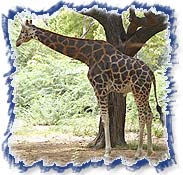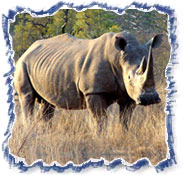Send Email Call Our Experts : 08046043349
|
- Periyar
Wildlife Sanctuary
- Bharatpur Bird Sanctuary - Gir Wildlife Sanctuary - Ranthambhore National Park - Jim Corbett National Park - Kanha National Park and
more... and more...
 and more... and
more... India Special Tours
- Royal
Weddings
- East India Tour - Kerala Backwater - Hill Tours - Spa Holidays - Luxury Holidays - Ayurveda & Yoga Tour - Trekking Tour - Gujarat Tours - Beach Holidays |
|
|
Home
» India
Wildlife Sanctuaries » Kaziranga
National Park
|
 Located
in the northeastern state of Assam, Kaziranga National Park is one of the
most ideal place in India to explore the wildlifes of India. You will come
across several rare and endangered species here which you might not get to
see elsewhere in the world. Kaziranga is home to largest number of rhino
population in the world. Besides, you can also find elephants in huge
numbers, other animal species and several kinds of resident birds moving
freely within the park area.
Located
in the northeastern state of Assam, Kaziranga National Park is one of the
most ideal place in India to explore the wildlifes of India. You will come
across several rare and endangered species here which you might not get to
see elsewhere in the world. Kaziranga is home to largest number of rhino
population in the world. Besides, you can also find elephants in huge
numbers, other animal species and several kinds of resident birds moving
freely within the park area.  The Fauna : One horned Indian Rhino, a large population of Indian
Elephants, Indian Bison, Swamp Deer or Barasingha, Hog Deer, Sloth Bears,
Tigers, Leopard Cats, Jungle Cats, Otters, Hog Badgers, Capped Langurs,
Hoolock Gibbons, Wild Boar, Jackal, Wild Buffalo, Pythons, Monitor Lizards,
etc are the various animal species found in the national park.
The Fauna : One horned Indian Rhino, a large population of Indian
Elephants, Indian Bison, Swamp Deer or Barasingha, Hog Deer, Sloth Bears,
Tigers, Leopard Cats, Jungle Cats, Otters, Hog Badgers, Capped Langurs,
Hoolock Gibbons, Wild Boar, Jackal, Wild Buffalo, Pythons, Monitor Lizards,
etc are the various animal species found in the national park.